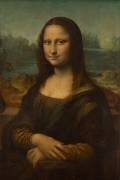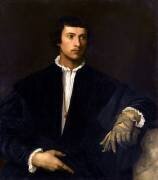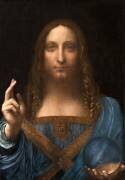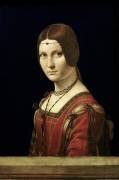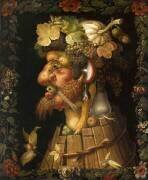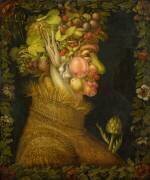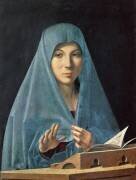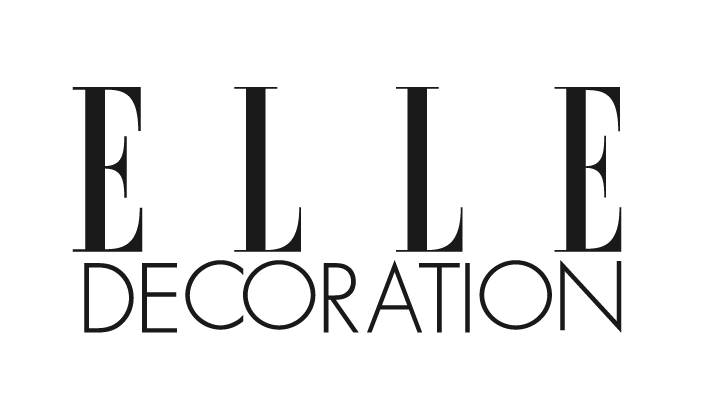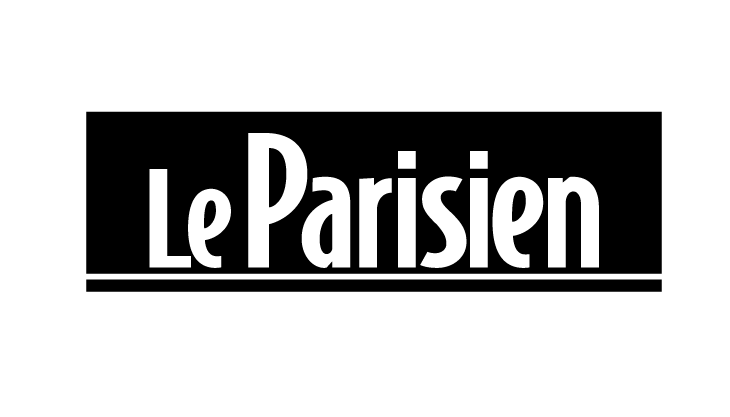Customise
Your art print
Head of a Young Woman with Tousled Hair... OF Leonardo da Vinci
Head of a Young Woman with Tousled Hair
Leonardo da Vinci's Scapigliata or Maiden's Head : an enigmatic and unfinished work
The Scapigliata, also known as the Maiden's Head, is a work by Leonardo da Vinci that raises many questions and interests. This mysterious yet bewitching painting depicts a young woman with shy eyes and dishevelled hair.
A painting characteristic of Leonardo da Vinci's style
The Italian artist is famous for his meticulous work and mastery of artistic techniques. La Scapigliata is no exception. It features the characteristic traits of Leonardo da Vinci's talent :
- Brush drawing : The finesse of the brush drawing used for this painting shows the precision he displayed in his creations.
- Study of expressions : As in many of his portraits, the study of facial expressions is particularly thorough. The shy look in the young girl's eyes bears witness to this.
- Albumin paper : The medium chosen for this work is albumen paper, a material frequently used by Leonardo da Vinci for his studies and sketches.
- Grisaille : The grisaille technique, used to give relief and a three-dimensional appearance to his works, is also present in this portrait.
An unfinished work that questions
La Scapigliata is surprising for its unfinished aspect. Indeed, it seems that Leonardo da Vinci did not finish this painting, as shown by the sketch present on the young girl's face as well as around her dishevelled hair.
A work destined to remain unfinished ?
Some hypotheses suggest that Leonardo da Vinci deliberately left this work unfinished. The enigmatic nature of the Scapigliata could then be a way for the artist to provoke questioning and reflection in those who observe the work.
The influence of other artists
Other interpretations suggest that the incompleteness of the Scapigliata is linked to the influence of other artists of the same period, notably Titian, famous for his portraits in which details are sometimes left out in favour of the expressiveness of the subjects depicted.
An original medium : silverpoint on paper and painting on wood
In addition to its unfinished appearance, La Scapigliata is also notable for its medium. Leonardo da Vinci in fact used a portrait of a young girl in silverpoint on paper as the basis for this painting. Furthermore, it seems that the artist also worked on this work on wood, although there is no formal proof regarding this support.
The question of support : a source of debate
The choice of support for the Scapigliata is a source of debate among specialists and enthusiasts of Leonardo da Vinci's work. Some believe that the original medium would be a painting on wood, while others favour the paper version. Whatever the case, the use of these two media testifies to Leonardo da Vinci's creativity and artistic genius.
La Scapigliata and its influence on contemporary art
Despite its unfinished and enigmatic nature, La Scapigliata continues to intrigue and fascinate. It inspires many artists and art lovers, who see it as a source of inspiration for their own works or reflections on the creative process.
Exhibitions paying tribute to the work of Leonardo da Vinci
A number of exhibitions pay tribute to the body of work of Leonardo da Vinci, including the Scapigliata. For example, the Leonardo da Vinci exhibition at UCLy in Lyon featured a selection of works by the Italian master, allowing visitors to discover or rediscover his masterpieces.
A source of inspiration for contemporary artists
La Scapigliata, with its incompleteness and mystery, also serves as a point of departure and inspiration for many contemporary artists. Some choose to revisit the portrait with their own touch, while others draw inspiration from it to create completely new works.
This artwork is a painting from the renaissance period. It belongs to the italian renaissance style.
« Head of a Young Woman with Tousled Hair » is kept at Galleria Nazionale - Palazzo della Pilotta, Parma, Italy.





